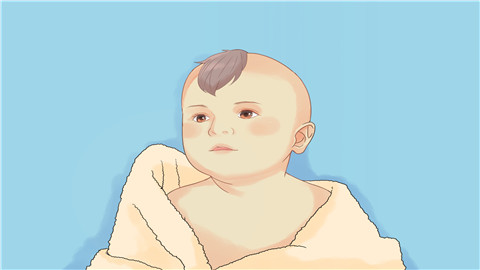What should be done about high bilirubin levels in infants?
Generally, high jaundice in infants may be caused by excessive bilirubin production, weak liver metabolism, breast milk jaundice, infectious jaundice, hemolytic jaundice, and other reasons. Parents can take the infant to a regular hospital for general treatment, phototherapy, drug therapy, and other methods to improve the condition. The specific analysis is as follows:
1. Excessive Bilirubin Production
After birth, infants have a higher number of red blood cells with shorter lifespans. When these cells break down, they produce more bilirubin, making high jaundice more likely. Increasing feeding frequency can help promote bilirubin excretion by encouraging more milk intake and bowel movements.
2. Weak Liver Metabolism
An infant's liver function is not yet fully developed, resulting in poor uptake, conversion, and excretion of bilirubin, which can lead to bilirubin accumulation and jaundice. Under a doctor's guidance, appropriate sun exposure can help reduce bilirubin levels using natural light.

3. Breast Milk Jaundice
Certain components in breast milk may affect bilirubin metabolism, causing jaundice that lasts longer in infants. If bilirubin levels are not extremely high, breastfeeding can continue with smaller, more frequent feedings. If bilirubin levels are high, breastfeeding may be paused for 1-2 days under a doctor's advice, switching to formula feeding until bilirubin levels decrease, after which breastfeeding can resume.
4. Infectious Jaundice
Infections from bacteria, viruses, and other pathogens can affect liver function, leading to abnormal bilirubin metabolism and elevated jaundice levels, possibly accompanied by symptoms such as fever and poor feeding. Under a doctor's guidance, medications such as Yinzhihuang Oral Liquid, Cefixime Granules, and Ganciclovir Injection may be used for treatment.
5. Hemolytic Jaundice
Mother-infant blood type incompatibility and other factors can cause hemolysis, destroying large numbers of red blood cells and rapidly increasing bilirubin levels, resulting in early and severe jaundice. Prompt hospital treatment is necessary, and under medical guidance, medications such as Human Albumin Injection, Intravenous Immunoglobulin for Human Use, and Phenobarbital Tablets may be administered. Blood exchange therapy may be required if necessary.
In daily life, closely monitor changes in the infant's skin jaundice, mental state, and feeding condition. Ensure the infant's skin remains clean to prevent infection. If jaundice persists or worsens, seek medical attention promptly.







